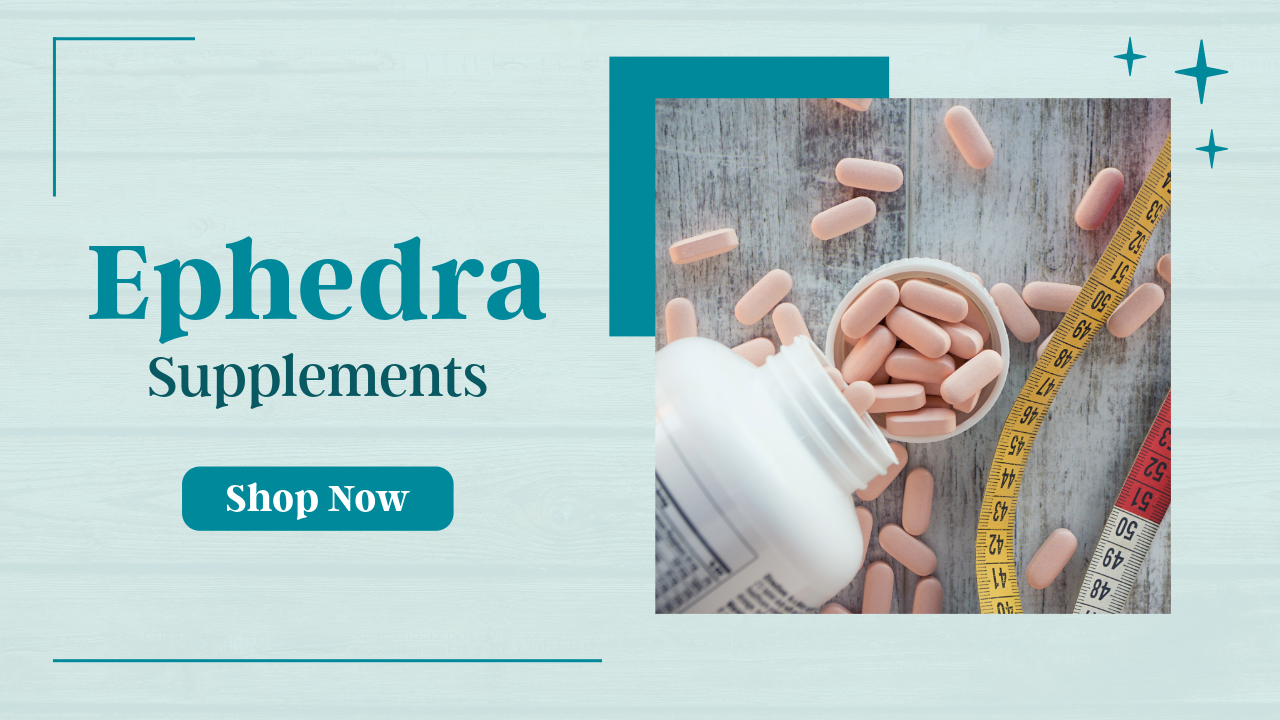Ephedra, also known as Ma Huang, is a plant that has been used for centuries due to its numerous health benefits. This fascinating herb has a rich history and has been utilized for various purposes, ranging from traditional medicine to weight loss and athletic performance enhancement. In this comprehensive guide, we will delve into the versatile uses of Ephedra and explore its potential benefits and considerations.
Historical Uses of Ephedra
Ephedra has a long-standing history of use in traditional medicine systems, particularly in ancient Chinese, Indian, and Native American cultures. These civilizations recognized the medicinal properties of Ephedra and utilized it to treat a wide range of ailments. The plant was commonly employed as a natural remedy for respiratory conditions, such as asthma, bronchitis, and congestion. Additionally, it was used to alleviate symptoms of colds, flu, and allergies.

Medicinal Uses of Ephedra
In modern medicine, Ephedra continues to be valued for its medicinal properties. One of the primary uses of Ephedra is in the treatment of respiratory conditions. The active compounds found in Ephedra, such as ephedrine and pseudoephedrine, act as bronchodilators, which help to open up the airways and improve breathing. This makes Ephedra an effective natural remedy for individuals suffering from asthma or other respiratory ailments.
Furthermore, Ephedra has been utilized as a natural decongestant due to its ability to reduce nasal congestion and sinus pressure. Many over-the-counter cold and flu medications contain Ephedra or its derivatives because of their effectiveness in relieving these symptoms. However, it is important to note that the use of Ephedra for medicinal purposes should always be done under the guidance of a healthcare professional to ensure safety and appropriate dosage. (1)
Weight Loss and Ephedra
Another popular use of Ephedra is for weight loss. Ephedra has been marketed as a dietary supplement due to its potential to increase metabolism and suppress appetite. The active compounds in Ephedra stimulate the central nervous system, leading to an increase in heart rate and thermogenesis, which is the process of heat production in the body. This, in turn, can result in weight loss and increased energy expenditure.
However, it is essential to approach Ephedra as a weight loss aid with caution. The use of Ephedra for weight loss has been controversial, as it has been associated with various side effects, including increased blood pressure, heart palpitations, and even serious cardiovascular events. Additionally, the sale of Ephedra as a dietary supplement has been banned in many countries due to these safety concerns. It is crucial to consult with a healthcare professional before considering Ephedra for weight loss purposes.
Athletic Performance and Ephedra
Ephedra has also gained popularity among athletes and fitness enthusiasts due to its potential to enhance athletic performance. The stimulant properties of Ephedra can increase alertness, endurance, and focus, making it appealing to individuals seeking an extra boost during workouts or competitions. Additionally, Ephedra has been shown to improve oxygen utilization and increase energy levels, which can contribute to improved performance.
However, it is important to note that the use of Ephedra in athletic settings has been subject to regulations and restrictions. Many sporting organizations have banned the use of Ephedra due to its potential to enhance performance beyond natural limits and its associated health risks. Athletes should be aware of the rules and regulations surrounding Ephedra use in their respective sports to avoid potential disqualification or harm. (2)
Respiratory Conditions and Ephedra
As mentioned earlier, Ephedra has a long history of use in traditional medicine for respiratory conditions. The plant’s bronchodilator properties make it an effective natural remedy for individuals suffering from asthma, bronchitis, or congestion. Ephedra works by relaxing the smooth muscles in the airways, allowing for improved airflow and easier breathing.
While Ephedra can be beneficial for respiratory conditions, caution must be exercised when using it. It is crucial to adhere to appropriate dosage guidelines and consult with a healthcare professional. Additionally, individuals with pre-existing medical conditions, such as hypertension or heart disease, should avoid or use Ephedra with extreme caution, as it can potentially exacerbate these conditions.
Ephedra in Traditional Medicine
Ephedra’s use in traditional medicine systems extends beyond respiratory conditions. In ancient Chinese medicine, it was employed to treat a variety of ailments, including headaches, joint pain, and urinary problems. Native American cultures also valued Ephedra for its diuretic properties, using it to alleviate fluid retention and promote urinary health.
Furthermore, Ephedra has been used in traditional medicine as an aphrodisiac and an aid for male fertility. It has been believed to enhance libido and improve reproductive health in men. However, it is important to note that scientific evidence supporting these claims is limited, and further research is needed to establish the effectiveness of Ephedra in this regard. (3)
Safety and Legal Considerations of Ephedra Use
The safety and legal considerations surrounding the use of Ephedra are of utmost importance. Ephedra has been associated with a range of side effects, including increased heart rate, high blood pressure, anxiety, and insomnia. In rare cases, it has been linked to severe cardiovascular events, such as heart attacks and strokes. Due to these potential risks, the sale of Ephedra as a dietary supplement has been banned in many countries.
It is crucial to understand the legal status of Ephedra in your jurisdiction before considering its use. Additionally, it is essential to consult with a healthcare professional to assess the potential risks and benefits of using Ephedra for your specific needs. They can provide guidance on appropriate dosage, potential interactions with medications, and any contraindications based on your medical history.
How to Use Ephedra Safely and Effectively
If you and your healthcare professional have determined that Ephedra may be suitable for your needs, it is important to follow guidelines for safe and effective use. Start by using the lowest effective dose and monitor your body’s response. It is recommended to take breaks from Ephedra use to prevent tolerance and reduce the risk of adverse effects.
Additionally, it is crucial to source Ephedra from reputable manufacturers to ensure product quality and minimize the risk of contamination. Always read and follow the instructions provided with the product, and never exceed the recommended dosage. If you experience any concerning symptoms or side effects, discontinue use and seek medical attention immediately.
The Legal Status of Ephedra
Ephedra is a medicinal herb that has been used for centuries in traditional Chinese medicine. Also known as Ma Huang, it contains ephedrine, a compound that has stimulant effects on the central nervous system. Ephedra has gained popularity as a weight loss supplement and performance enhancer, but its legal status has been a subject of controversy and debate.
History of Ephedra and its use
Ephedra has a long history of use in traditional medicine, dating back thousands of years. It was commonly used to treat respiratory conditions such as asthma, bronchitis, and hay fever. The herb was also believed to have properties that helped with fatigue, low energy levels, and even sexual dysfunction.
In the 1990s, ephedra gained popularity as a weight loss supplement and performance enhancer in the United States. It was marketed as a natural way to boost metabolism and burn fat. However, concerns about its safety and potential side effects soon arose, leading to a heated controversy. (4)
The controversy surrounding Ephedra
The use of ephedra as a dietary supplement sparked a fierce debate within the medical and scientific communities. Some argued that when used responsibly and in moderation, ephedra could provide benefits such as increased energy and weight loss. Others raised concerns about its potential health risks and believed that it should be regulated or even banned.
The FDA’s regulation on Ephedra
In response to the growing concerns, the U.S. Food and Drug Administration (FDA) took action to regulate ephedra. In 2004, the FDA banned the sale of dietary supplements containing ephedra alkaloids, citing evidence of serious health risks associated with their use. This decision was based on reports of adverse events, including heart attacks, strokes, and even deaths linked to ephedra usage.
The ban was not without controversy, as some argued that the FDA’s decision was based on inadequate scientific evidence and that responsible use of ephedra should still be allowed. However, the ban remained in effect, making ephedra-containing dietary supplements illegal in the United States. (5)
Legal alternatives to Ephedra
While ephedra-containing supplements are banned, there are legal alternatives available in the market. These alternatives often contain natural ingredients like caffeine, green tea extract, and bitter orange extract, which are believed to have similar stimulant effects as ephedra. However, it is important to note that these alternatives may still carry risks and should be used with caution.
It is advisable to consult with a healthcare professional before using any dietary supplements, including those marketed as ephedra alternatives. They can provide guidance on the safety, efficacy, and potential interactions of these products.
The potential health risks and side effects of Ephedra
Ephedra has been associated with a range of potential health risks and side effects. The stimulant effects of ephedra can increase heart rate and blood pressure, which may pose risks for individuals with pre-existing cardiovascular conditions. Other potential side effects include insomnia, anxiety, dizziness, and digestive issues.
Additionally, ephedra has been found to interact with certain medications, including those for heart conditions, high blood pressure, and mental health disorders. These interactions can lead to serious health complications and should be taken into consideration when using any products containing ephedra or ephedra alternatives.
Lawsuits and legal cases related to Ephedra
The controversy surrounding ephedra has also resulted in numerous lawsuits and legal cases. Manufacturers of ephedra-containing supplements faced litigation from individuals who claimed to have suffered injuries or adverse health effects as a result of using these products. Some of these cases resulted in significant financial settlements or court rulings against the manufacturers.
These lawsuits, along with the growing evidence of potential health risks, further fueled the debate over the legal status of ephedra and the responsibility of manufacturers in ensuring the safety of their products. (6)
The current legal status of Ephedra in different countries
The legal status of ephedra varies from country to country. While it is banned in the United States, some countries have implemented regulations to control its use and sale. In Canada, for example, ephedra is classified as a controlled substance and can only be obtained with a prescription. In the United Kingdom, ephedra-containing supplements are legal but must be labeled with specific warnings and usage instructions.
It is crucial for individuals to research and understand the legal status of ephedra in their respective countries before considering its use. Ignorance of the law does not exempt one from potential legal consequences.
Understanding the legalities of Ephedra
The legal status of ephedra has been a subject of controversy and debate for many years. While it was once widely used in traditional medicine, concerns about its safety led to its ban in the United States and regulations in other countries. Legal alternatives to ephedra exist, but it is important to exercise caution and consult with healthcare professionals before using any dietary supplements.
As with any substance, it is essential to consider the potential health risks and side effects before using ephedra or ephedra alternatives. Understanding the legalities surrounding ephedra is crucial to ensure compliance with the law and to make informed decisions about its use.
If you are considering using ephedra or any dietary supplements, consult with a healthcare professional to understand the potential risks and benefits. They can provide guidance tailored to your specific health needs and help you make informed decisions.
Conclusion: The Versatility of Ephedra
In conclusion, Ephedra is a versatile herb that has been used for centuries due to its numerous health benefits. From its historical use in traditional medicine to its potential applications in weight loss and athletic performance, Ephedra continues to captivate researchers, healthcare professionals, and individuals seeking natural remedies.
However, it is crucial to approach Ephedra with caution and under the guidance of a healthcare professional. The safety considerations and potential risks associated with Ephedra use cannot be overlooked. By understanding the versatile uses of Ephedra and taking appropriate precautions, individuals can potentially harness its benefits while minimizing the potential for harm.
Remember, always consult with a healthcare professional before considering the use of Ephedra or any other herbal supplement. They can provide personalized advice based on your specific health needs and help you make informed decisions regarding your well-being.
If you are considering the use of Ephedra or any herbal supplement, consult with a healthcare professional to assess the potential risks and benefits. Ensure you understand the legal status of Ephedra in your jurisdiction and follow guidelines for safe and effective use. Your health and well-being are paramount, and professional guidance can help you make informed decisions.







